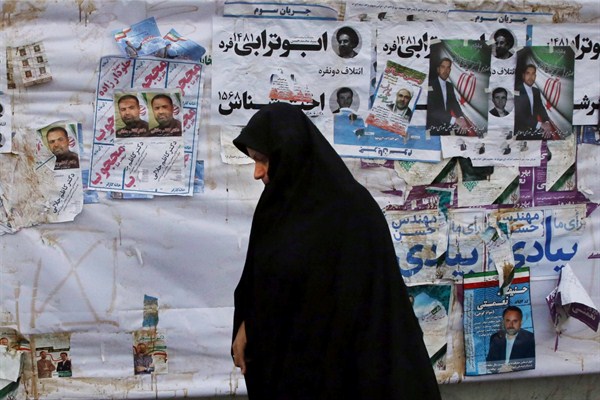On Friday, Feb. 26, Iranians will take part in a complicated and contradictory drama in their country: voting in elections. They will cast ballots for candidates in the Majlis, Iran’s parliament, where all 290 seats are contested every 4 years, and the Assembly of Experts, in which its 88 members—all senior religious scholars—are elected every 8 years.
The Majlis race is of short- and medium-term importance, mainly affecting President Hassan Rouhani’s ability to enact his political agenda. Whether the new parliament will work with him or not has implications for developing Iran’s post-sanctions economy and other key domestic issues. The Assembly of Experts, meanwhile, is significant in the long term, since the council’s primary task is electing the supreme leader, the highest political authority in the Islamic Republic and the final decision-maker in Iran’s conflict-ridden political system. With the 76-year-old Supreme Leader Ayatollah Ali Khamenei in reportedly poor health, it is likely that the clerics voted into the next Assembly of Experts will name his successor.
Iranian elections are a somewhat paradoxical exercise unique to the Islamic Republic. They are managed, in the sense that candidates are vetted in several stages before they are allowed to stand. But since the elections are still contested, the jockeying prior to them is substantial and drawn out, while the actual election campaign is brutally short. The seal of approval from the Guardian Council comes just weeks before voters go to the polls.

